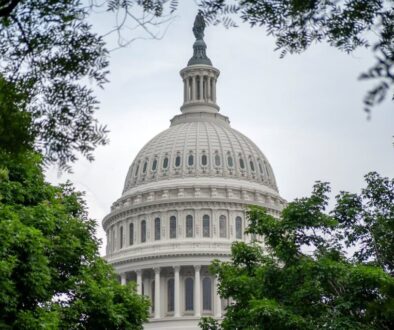Bitcoin has transformed the world of finance and investment since its inception in 2009. What started as a niche digital currency has caught the attention of countries worldwide—some officially buying Bitcoin for their reserves, while others see huge unofficial adoption through corporations and private investors.
In this post, we’ll dive deep into which countries have invested in Bitcoin, the background of its founder, the pros and cons of countries holding BTC, how Bitcoin is being utilized, and what the future holds. Let’s get started! 🚀
What Is Bitcoin? A Quick Recap 🔍
Bitcoin is a decentralized digital currency created by an anonymous individual or group known as Satoshi Nakamoto in 2008. Nakamoto published a whitepaper titled “Bitcoin: A Peer-to-Peer Electronic Cash System” that introduced blockchain technology—a revolutionary way to record transactions without a central authority.
Since then, Bitcoin has grown into a global phenomenon, valued for its scarcity (only 21 million will ever exist), transparency, and censorship-resistant properties.
Countries Officially Investing in Bitcoin 🇸🇻
1. El Salvador — The Bitcoin Pioneer
In September 2021, El Salvador became the first country to adopt Bitcoin as legal tender. The government, led by President Nayib Bukele, purchased over 2,300 BTC to back this initiative. The move aims to promote financial inclusion, attract investment, and reduce remittance fees for Salvadorans abroad. Learn more here.
2. Ukraine — Crypto Support Amid Conflict
Ukraine’s government has accepted Bitcoin donations to support its defense efforts during the 2022 conflict. The National Bank of Ukraine is also exploring how to regulate and possibly adopt cryptocurrencies formally. Although not yet official reserves, Ukraine’s engagement with Bitcoin is notable. More info.
3. Venezuela — A Response to Hyperinflation
Due to severe inflation and economic turmoil, Venezuela’s government promoted its own cryptocurrency, the Petro, but citizens have turned to Bitcoin as a safer store of value. While the government’s Bitcoin involvement is indirect, its citizens and some state entities unofficially hold Bitcoin as a hedge.
Countries With Large Unofficial Bitcoin Investments 🌐
Many countries haven’t officially bought Bitcoin but have massive private and institutional BTC holdings.
United States
Companies like MicroStrategy, Tesla, and various hedge funds have purchased billions worth of Bitcoin as part of their treasury strategy. Several U.S. states, including Texas and Wyoming, are crypto-friendly with clear regulatory frameworks, though no official Bitcoin reserves exist. MicroStrategy Bitcoin holdings.
Germany
Germany is Europe’s crypto powerhouse with many corporations and even pension funds investing in Bitcoin. The country has progressive regulations but no official BTC reserve holdings.
Switzerland
Known as the “Crypto Valley,” Switzerland hosts many crypto startups and investment funds, supporting extensive Bitcoin adoption without direct government investment.
The Bitcoin Roadmap for Countries 🚦
Bitcoin’s global adoption journey looks like this:
| Phase | Description | Countries/Entities |
|---|---|---|
| Exploration | Regulatory frameworks and crypto-friendly policies | Paraguay, Ukraine, Japan |
| Unofficial Adoption | Institutional and private investments surge | USA, Germany, Switzerland |
| Official Investment | Governments buy and hold BTC | El Salvador |
| Legal Tender & Integration | BTC used for everyday payments & state functions | El Salvador, potential future countries |
About Bitcoin’s Mysterious Founder: Satoshi Nakamoto 🕵️♂️
No one knows exactly who Satoshi Nakamoto is—whether it’s one person or a group remains a mystery. Nakamoto mined the first 50 bitcoins and contributed to Bitcoin’s early development before disappearing in 2011. The anonymity helped Bitcoin remain decentralized and immune to government control.
Pros and Cons of Countries Investing in Bitcoin ⚖️
Pros ✅
- Diversification: Bitcoin can diversify a country’s reserves beyond traditional assets like gold and fiat currencies.
- Inflation Hedge: In countries with weak currencies, BTC can protect wealth from inflation.
- Financial Inclusion: Especially in developing nations, Bitcoin offers access to banking services for the unbanked.
- Innovation Boost: Government involvement spurs local blockchain and crypto innovation ecosystems.
Cons ❌
- Volatility: Bitcoin’s price can be extremely volatile, risking significant losses.
- Regulatory Risks: Uncertain global crypto laws may lead to sudden restrictions.
- Energy Concerns: Bitcoin mining consumes large amounts of energy, raising environmental issues.
- Technology Risk: Being a digital asset, Bitcoin faces risks like hacking and software vulnerabilities.
How Countries and Businesses Use Bitcoin Today 💡
- Payments & Remittances: El Salvador uses Bitcoin for remittance payments, lowering transaction fees.
- Investment Asset: Corporations and sovereign wealth funds hold BTC to preserve value.
- Fundraising: Ukraine’s government accepted Bitcoin donations during crisis periods.
- Innovation Labs: Governments explore blockchain for identity verification, voting, and supply chain.
The Future of Bitcoin in Global Economics 🔮
Bitcoin’s future in the global economy looks promising but uncertain. As more countries explore Bitcoin’s benefits and regulate its risks, we may see:
- More countries adopting Bitcoin officially (especially those with unstable currencies).
- Integration with Central Bank Digital Currencies (CBDCs), blending decentralized and state-backed digital money.
- Increased institutional adoption, making Bitcoin a mainstream reserve asset.
- Evolving regulations that foster innovation while protecting consumers.
Conclusion: Bitcoin’s Global Footprint Expands 🌏
Bitcoin’s rise from a cryptographic experiment to a global financial asset is extraordinary. While only a few countries like El Salvador have officially embraced Bitcoin with government purchases, many others are seeing Bitcoin’s influence grow through private and institutional channels.
Whether a country is officially investing or unofficially adopting Bitcoin, the technology is reshaping global finance and offers opportunities for innovation, wealth preservation, and financial inclusion.




































